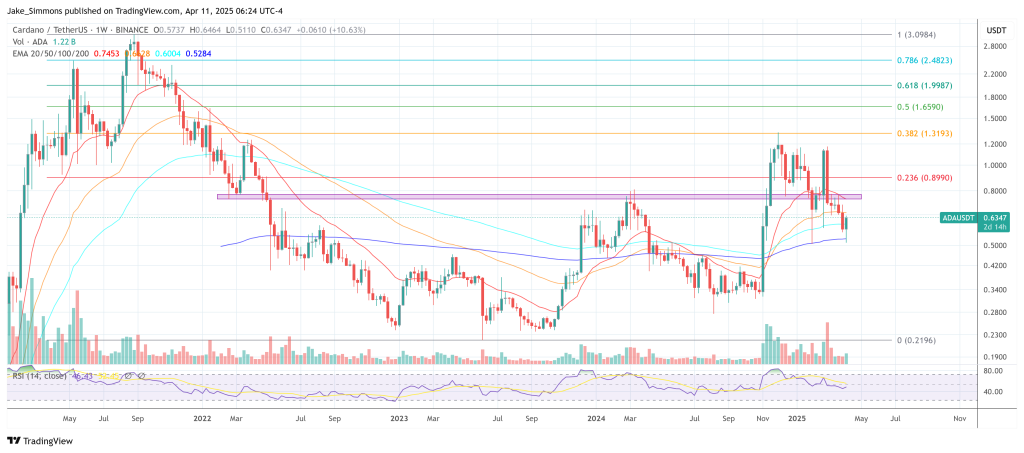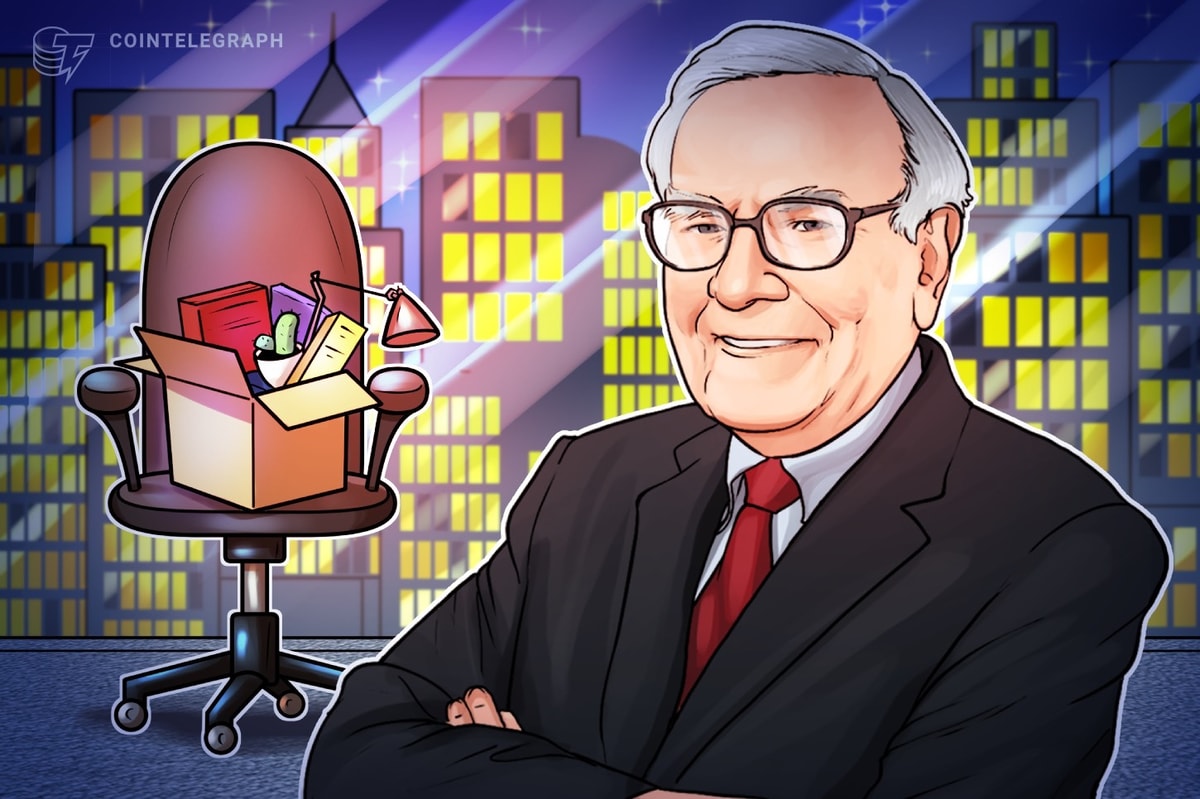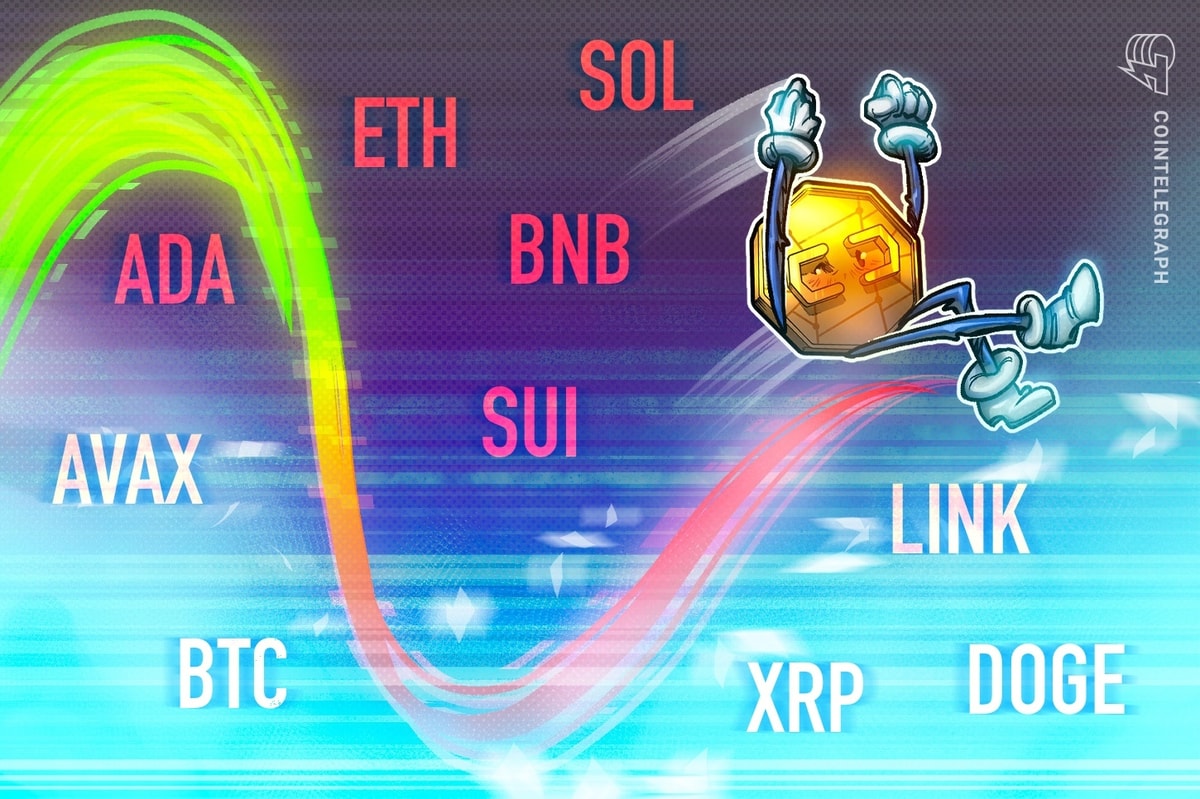Cardano Foundation CEO Frederik Gregaard took the main stage at Paris Blockchain Week on Thursday, covering everything from the original ideals behind Bitcoin to the rapid expansion of AI and the crucial role of decentralized infrastructure.
Vision For Blockchains And Cardano
Gregaard started by reflecting on the early vision of Bitcoin and what drew so many to decentralized technology in the first place. “We thought about this opportunity that there’s a lot of people who don’t have access to financial markets, who don’t have access to technology we take for granted, who is being blocked because they don’t have a passport or a national identity,” he said.
He emphasized that the core ethos behind Bitcoin was the capacity to move value without intermediaries and to truly own one’s assets. Yet he also acknowledged that the second generation of blockchain, typified by Ethereum, shifted the conversation toward broader capital markets. “Ethereum did extremely well in basically disrupting that model,” he remarked, yet he cautioned that traditional financial power structures often found their way back in. He cited examples of equity demands and sizable listing fees, observing that, in many ways, “Wall Street is creeping in on us again.”
Against this backdrop, Gregaard stressed the global transformations now underway, highlighting the pivotal rise of artificial intelligence. “I actually do think the world will be dominated by AI,” he said, posing the critical question of how best to harness it so that people remain in control. He warned that the appetite for AI’s “fantastic user experience” often overshadows concerns over energy consumption, data provenance, and transparency.
For him, this is precisely where blockchain can deliver robust solutions, because the trustless computing model and immutable data storage ensure that information cannot be tampered with. “When you look at it now, the idea about blockchain was really two things. We want blockchain as a trustless computing platform, and we want blockchain as an immutable data storage,” he explained, referencing real-world deployments such as a Cardano-based project in Eastern Africa, where village-level land registration helped reduce local violence by transparently mapping property ownership.
Gregaard underscored the importance of verifiable data in an era dominated by AI-driven analytics and decision-making. He raised concerns about the reliability of information that is not traceable to a trustworthy source, observing that political decisions or international trade policies could rest on flawed or manipulated data. “We are being exposed to things we cannot verify,” he said, cautioning that governments might be adopting measures “without being exposed to the right data.”
He then pointed out that large language models only amplify these concerns, since they rely on massive data sets that may or may not be accurate. “It does matter,” he stressed, arguing that pairing AI with on-chain, verified information is the only way to ground these technologies in “what’s the truth.”
Cardano Can Scale Above Visa-Levels
Turning to Cardano’s own ecosystem, Gregaard spoke of identity solutions and the growing importance of agentic AI, where machine-driven “agents” communicate based on assured credentials rather than risking data leaks to centralized platforms. “We launched a wallet which is compatible with the LEI,” he said, referring to the Legal Entity Identifier system used in global trade.
He called the solution open-source and not limited to Cardano alone, noting that others could deploy it on different blockchains. The principle, he said, is that all of us will hold multiple types of identities, and these should be managed in a way that fosters security, privacy, and interoperability. He also mentioned practical applications such as brand security, carbon credits in Kenya, and decentralized accounting, revealing that the Cardano Foundation itself places its financial statements on-chain. “Why are we doing that?” he asked. “Because we need to get to a place where we can actually not just trust the data but know that the data is truth.”
Gregaard confronted the critique that public permissionless blockchains cannot scale to handle global-level volume, specifically in finance. “Yes, you can run Visa and MasterCard on a public permissionless blockchain,” he asserted, introducing a striking claim that Cardano can do it.
“We did over 90 million transactions in one day, fully secured by 3,000 stake pool operators. So all those things they’re talking about cannot be done. It can be done.” It was a direct response to the pervasive belief that major networks such as Visa are out of reach for decentralized architectures.
He attributed this to an evolving technological stack that has advanced well beyond the early days of permissioned blockchain experiments. According to him, anyone can now harness a “footprint of innovation” across multiple sectors on the Cardano blockchain—supply chain, healthcare, data management, real estate—without the need for entirely new chain architectures.
TODAY:
Frederik Gregaard (@F_Gregaard), CEO of @Cardano_CF, spoke on the main stage at Paris Blockchain Week.
Here’s the full keynote. pic.twitter.com/LcHQTR3BRp
— Cardanians (CRDN) (@Cardanians_io) April 10, 2025
In his concluding thought experiment, Gregaard challenged the audience to envisage a near future in which the world’s most valuable companies employ only a handful of people but reach trillion-dollar valuations, all while regulators scramble to implement effective oversight. “We’re not going to get to self-sovereign identity tomorrow,” he admitted, “but we can get to a wallet” that addresses many of today’s regulatory and practical demands.
He also argued that more transparency, particularly on blockchains, would enable stakeholders, shareholders, and citizens to hold large enterprises genuinely accountable. “With a large language model on top of this kind of information, you can be the most intelligent shareholder ever,” he said, suggesting that verifiable on-chain data can empower even small shareholders with potent insights.
At press time, Cardano traded at $0.63.












